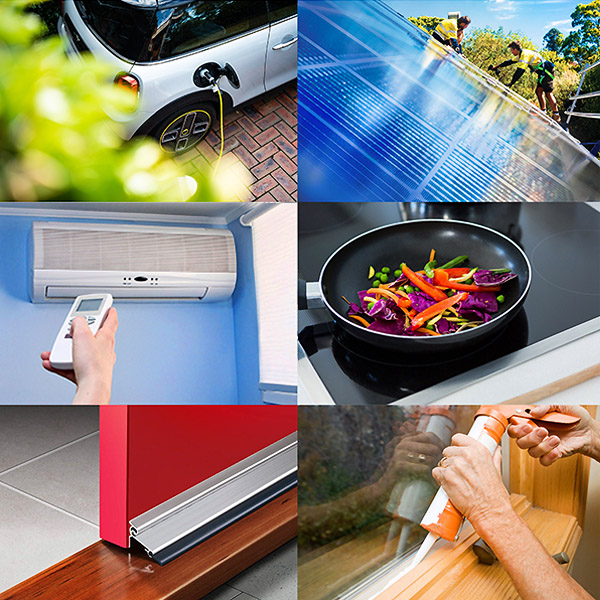What can we do and why?
The road to net zero is one we must travel and it is important that we arrive as soon as possible. The good news is that every individual can play their part even if the heavy lifting must be done by Government and Industry. Lighter Footprints makes submissions to Governments asking them to provide more assistance to individuals. Our submissions have focused on:
- The economic benefits of transitioning off gas
- Leaving nobody behind – special provisions for renters and low-income homeowners.
- The role that improving the thermal efficiency of homes can play.
Submissions covering these topics include:
- Submission to the Senate Inquiry on Residential Electrification
- Submission on the Future Gas Strategy
- Submission on Minimum Rental Standards
Areas to focus in
So, let’s look at where emissions reduction needs to take place:
Energy grid
Firstly, we should look at the energy grid. Australian governments are working together to transform our energy systems to deliver cheap, clean, and reliable energy. The Australian Government is targeting 82% renewable energy in our electricity grids by 2030. This target must be achieved as gas users transition to electricity and more car owners transition to EVs. It will be a challenge, but we can all contribute.

Solar panels pay for themselves in three to five years, reduce emissions and contribute to the clean energy transition
Individuals can contribute by:
- Improving the thermal insulation of their homes.
- Transitioning to efficient new electric appliances.
- Managing their demand so that they charge their EVs when there is surplus renewable energy available.
- Installing rooftop solar.
- Installing home batteries or having two-way charging for their EVs once standards have been finalised.
- Limiting cruises and air travel.
Now I am not suggesting that all individuals can do all of the above actions but:
- Gas is being phased out in Victoria and all households will transition to be all-electric. The transition should result in lower energy bills.
- Improving the thermal efficiency of your home will make it more comfortable and result in lower energy bills.
- When an individual buys an EV they should consider smart charging to reduce bills and reduce a burden on the grid.
Lighter Footprints developed a hierarchy of home efficiency. All items are still relevant, but priorities may shift as we go along the journey.
In the journey to homes with improved thermal efficiency it is important that renters and low-income homeowners do not miss out. The Victorian government is:
- Considering the implementation of minimum standards for rental properties (refer LF submission)
- The Victoria government has selected seven companies to receive grants to deliver bulk solar panel and hot water system installations to vulnerable households in order to speed up electrification in the state and the switch away from gas
- Check out this article on the funding round here
- The new round of grants, worth $4 million will target supplies to vulnerable people, retirees and first home buyers.
Getting off gas
Secondly we should look at gas consumption. Gas is a dirty fossil fuel and we need to reduce our use of gas. Gas should only be used in industry (if electrification is not possible) and for firming the electricity grid. The gas we need for these purposes is a small percentage of current consumption.
Low carbon transport
Thirdly, we should look at transport.
For passenger vehicles emission standards should help and the continuing adoption of EVs will also help. Driving vehicles that are fit-for-purpose and not driving Toorak Tractors would also help.

Electr5ic vehicles are fun to drive, reduce pollution, hardly ever need servicing and save you up to two thousand dollars a year
We need greater action to transition trucks. It would make sense to remove fuel excise rebates from large trucks. These are prolonging the used of polluting vehicles. However, our governments seem committed to prioritising business over individuals.
Air travel and shipping remain an issue although great advances are being made in these areas.

